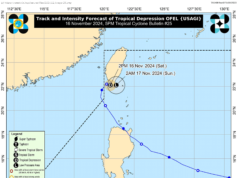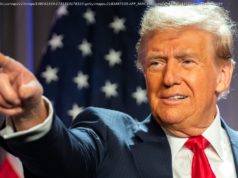Government advisers say Beijing is redoubling efforts to better understand the Trump administration’s thinking as it explores potential to restart talks
China is consulting businesspeople and think tanks at home and abroad as it considers whether to adapt its strategy in the trade war between the world’s two biggest economies, according to Chinese government advisers.
But some observers said it might be too little to address the big concerns at the heart of the conflict without paying a high price.
The advisers said Beijing was reaching out to assess the impact of the trade row and political sentiment in Washington, and was exploring the possibility of restarting talks – although the time was “not ripe right now”.
They said mistakes were unavoidable but the leadership was redoubling efforts to better understand the thinking of the administration of US President Donald Trump and was confident of riding out the trade storm.
Teng Jianqun, head of US research at the China Institute of International Studies – a think tank affiliated with the Ministry of Foreign Affairs, said “China has never experienced such aggressive challenges” and needed a sustainable strategy for the long run.
“Lessons have to be learned. We shouldn’t fight a trade war for the sake of fighting. This is not two kids… throwing bricks at each other,” Teng said. “[We need to] plan our moves and avoid pitfalls that would endanger the nation’s grand strategy and overall policy design.
“Compared with the world’s biggest power, we may appear to be inadequate in some areas. But we have our own long-term strategy.”
He said Beijing’s top priority was to ensure political and economic stability so China could stand up to the external challenges.
But Teng warned that the general public in China still had not fully grasped the danger of the trade war and the country should be prepared to “cut a pound of flesh from our body” to meet the US challenge.
Stability was the focus of attention when the Politburo, China’s top decision-making body, met on Tuesday. Putting security ahead of short-term growth, it said the country needed to stay focused on cutting debt, weeding out financial irregularities and creating jobs.
China’s need for a firm footing has risen as Beijing and Washington have become entangled in a row that could undermine global trade and order. Both countries have imposed 25 per cent tariffs on US$34 billion of each other’s products and another US$16 billion is in the pipeline.
The Trump administration also plans to raise the tariff from 10 per cent to 25 per cent on US$200 billion worth of Chinese products.
Renmin University international relations professor Shi Yinhong said there was no prospect of a resumption in trade talks any time soon.
“They won’t get back to the talks table until they … feel the pain in their economy,” Shi said.
Jake Parker, vice-president for China operations with the US China Business Council, said the Chinese government had met representatives of US industries frequently to understand their perspective and seek ways to improve ties.
“[Beijing] is trying to fully assess the impact of tariffs imposed to date and how it impacts the overall economy,” Parker said.
“It is very interested in how the tariffs would impact foreign companies’ domestic operations, what kind of negative impact [it will have] on their manufacturing and how it might be impacting their views on potentially relocating supply chains outside of China.
“There is also focus on recommendations how China may begin to re-engage the negotiations with the US and what priorities that companies think should be highlighted by the Chinese negotiators with their US counterparts.”
But he said the foreign business community had “promise fatigue” and China had not yet publicly addressed US concerns to “show they are serious about” returning to talks.
Parker said China needed to take tougher action against intellectual property theft and eliminate joint venture and business licence requirements that authorised technology transfer in return for market access.
Shi said China had moved very late to address foreign concerns and had to pay higher costs.
“China failed to take action in previous years to prevent trade conflict escalating with the United States and Europe. It has reinforced state control over domestic and external economic activities and not expanded market access, doing almost nothing in regard to the rage in the West,” he said.
Bai Ming, a senior researcher with the Ministry of Commerce, said the trade war would force China to press ahead with reform, such as moving up the manufacturing value chain to address overcapacity.
Meanwhile, one Chinese think tank has teamed up with a conservative US counterpart to get a better insight into the White house.
The Beijing-based Centre for China and Globalisation has launched a research programme with the Hudson Institute, where Peter Navarro, a leading China hawk in the Trump administration, gave a lecture at the end of June.
Communications with such think tanks could help bring down economic and political barriers, and offer strong support for policy research and decision making, the centre said.
But Teng said communication was hampered by rising wariness in the US about China.
He said that, for example, Beijing had sent nearly 60 invitations to US researchers for an exchange programme in June, receiving just 14 replies.






